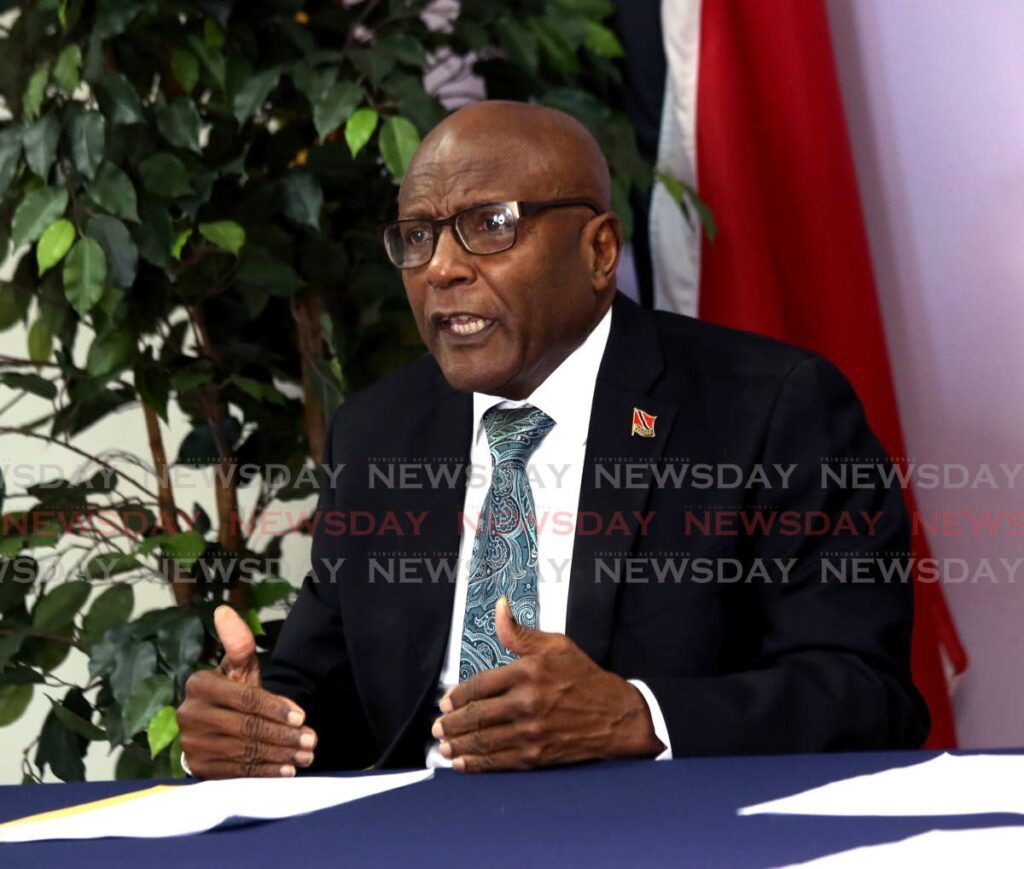Singapore’s succession planning – model for Trinidad and Tobago

RODNEY CHARLES
ON MAY 15, Singapore’s deputy Prime Minister Lawrence Wong, aged 51, was sworn in as that country’s fourth Prime Minister, pledging to sustain what he called “the miracle of a wealthy city state amid an uncertain global environment.”
He assumed power in a seamless, voluntary, generational transfer of leadership from his immediate long-serving predecessor, 72-year-old Lee Hsien Loong.
Singapore is a “real country” with a per capita GDP of US$67,360 compared to Trinidad and Tobago’s US$14,155. At independence Trinidad and Tobago’s GDP per capita was higher than Singapore’s.
Our leadership of this seemingly unreal place, by contrast to Singapore’s, appears content to either blissfully tour the world, at taxpayers' expense, while the country literally reaches its lowest level, or pronounce infamously that they “eh leaving politics under no circumstances except possibly in a casket.”
As I have said repeatedly to the national community, I have reached that stage in my life where it is important, for Trinidad and Tobago’s future political success and maturity, to make way for succeeding generations of political leadership, hence I will not be contesting any national executive (Natex) position.
However, I have told Rushton Paray, whose slate I intend to support, that I am available to assist his team in this campaign.
The UNC has announced the members of the elections management committee to oversee upcoming national executive elections. The committee consists of chairman Darrel P Allahar, Marilyn Martin and Dr Allen Sammy.
An elections management committee is not mentioned in our Constitution and is therefore a creature of our party’s leadership.
I will be blunt. I am not satisfied with the appointment of this committee.
Who appointed the members?
What discussions took place prior to their appointments?
When were they appointed?
Who drafted their terms of reference?
Is this committee a done deal, or is Paray and his slate (or other slates) allowed to suggest additional people even for balance?
How will it look if Dr Rowley in 2025 decided to announce members of the Elections and Boundaries Commission (EBC), for an election in which he was involved or had a well-publicised interest?
I cast no aspersions on the integrity of the present members of this committee but if this management committee was selected by the outgoing executive, how would party members react if at the next general election the outgoing PNM Government chooses the members of the EBC to supervise the elections, or worse the EBC members were chosen by the political leader of the PNM?
Is it that committee members are being used to add legitimacy to a process that is, by all measures, inherently flawed?
Does chairman Allahar, as a former judicial officer, feel comfortable with the manner of his appointment? Does it sit right with him?
The legal fraternity must be looking on in wonderment and with discomfort.
The composition of that committee needs to be revisited.
Ideally it should comprise five members: two selected by the outgoing executive, two by opposing slates, with an independent chair agreeable to all parties. That would unquestionably be close to best practice.
The 2025 general election will be the most important in our country’s history. With the greatest respect to my colleagues on the present Natex, I am convinced that the party needs new faces, First World ideas, Singaporean thinking and a soothing, reassuring, professional breath of fresh air.
Rodney Charles is the MP for Naparima


Comments
"Singapore’s succession planning – model for Trinidad and Tobago"